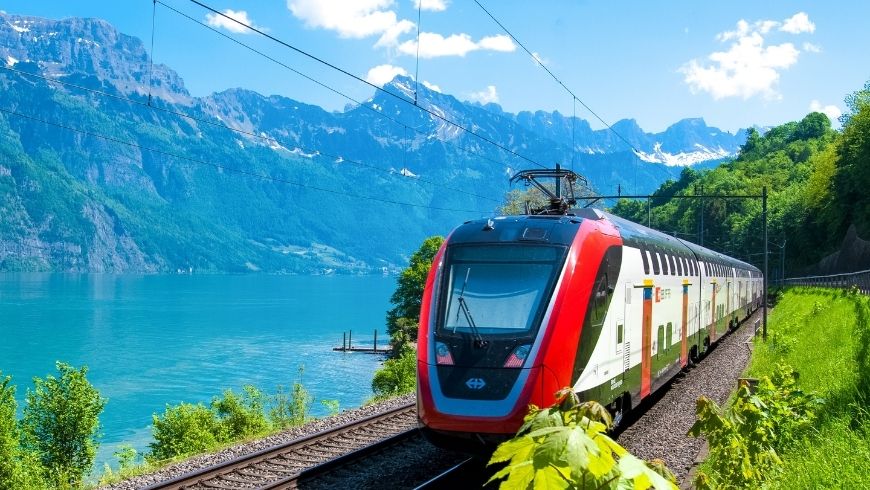Responsible Tourism India: Respect Culture, Protect Nature

Importance of Responsible Tourism in India
Overview of responsible tourism
Responsible tourism in India involves making conscious choices to minimize negative impacts on the environment, culture, and economy while maximizing the benefits for local communities and natural resources. It focuses on sustainability, ethics, and respect for local traditions.
By being mindful of your actions as a tourist, you can contribute to preserving India's rich cultural heritage and stunning natural landscapes.
Benefits of Practicing Responsible Tourism in India
- Respect for Local Culture
- Preservation of Environment
- Support for Local Communities
By engaging with local communities and respecting their traditions, you can help preserve India's diverse cultural heritage. Responsible tourism promotes the conservation of India's fragile ecosystems and reduces travellers' carbon footprint. Supporting local businesses, artisans, and guides contributes directly to the economic development of communities.

Sustainable Travel Practices in India
Promotion of eco-friendly transportation
When you travel in India, opting for eco-friendly transportation like public buses or trains instead of private cars can significantly reduce your carbon footprint. This simple choice helps minimise environmental impact and contributes to conserving India's natural resources.
Supporting local communities through responsible travel
Engaging with local communities by staying in homestays or purchasing handmade souvenirs directly supports residents' livelihoods. Your actions as a responsible traveller in India can empower communities economically and socially, enriching your travel experience while benefiting those who call India home.

Wildlife Conservation and Ecotourism in India
Efforts to protect endangered species
India has implemented various conservation programs to protect endangered species like the Bengal tiger, Indian rhinoceros, and Asiatic lion. By supporting these efforts, you contribute to the preservation of India's rich biodiversity and help secure a future for these magnificent creatures.
Promoting wildlife sanctuaries and national parks
Visiting wildlife sanctuaries and national parks in India offers memorable experiences and plays a crucial role in funding conservation projects. These protected areas serve as havens for numerous species of animals and plants, and your visit helps generate revenue for their upkeep and protection.

Cultural Preservation and Community Engagement
Preservation of India's diverse cultural heritage
When you visit India, you contribute to preserving its diverse cultural heritage. The country is home to a myriad of traditions, languages, and customs that have been passed down through generations.
By immersing yourself in India's rich cultural tapestry, you gain a deeper appreciation for its history and help sustain these invaluable traditions for the future.
Involvement of local communities in tourism initiatives
Engaging with local communities in India plays a vital role in fostering sustainable tourism practices. When you support community-based initiatives, such as homestays or local handicrafts, you directly contribute to the economic empowerment of these communities. This, in turn, helps preserve traditional skills and knowledge while creating opportunities for individuals to benefit from tourism meaningfully.

Responsible Accommodation Options in India
Introduction to eco-friendly and sustainable accommodations
When exploring India, eco-friendly and sustainable accommodations can significantly reduce your environmental impact. These establishments strive to minimize their carbon footprint by implementing water conservation, waste management, and using renewable energy sources.
By choosing these green accommodations, you actively contribute to preserving India's natural beauty for generations to come.
Homestays and community-owned lodgings
Staying at homestays and community-owned lodgings in India provides a unique opportunity to immerse yourself in the local way of life. Families or community groups often manage these accommodations, offering an authentic cultural experience while benefiting local residents.
By opting for homestays, you support the livelihoods of Indian families and contribute to the preservation of traditional hospitality practices. Additionally, your stay helps to foster genuine cultural exchange and understanding between visitors and the host community.

Responsible Souvenir Shopping and Artisan Support
Encouraging ethical shopping practices
When travelling in India, you can contribute to sustainable tourism practices by being mindful of the souvenirs you purchase. Opt for items that are locally made and support small businesses or artisans.
By choosing products that are ethically sourced and crafted, you help preserve traditional crafts and promote fair trade practices. Your conscious shopping decisions can empower local communities and ensure that you are bringing home meaningful and sustainable mementoes of your journey.
Supporting local artisans and craftsmen
By supporting local artisans and craftsmen, you play a crucial role in preserving India's rich cultural heritage. By purchasing handmade goods directly from artisans or cooperatives, you contribute to the preservation of traditional skills and craftsmanship.
Your support not only helps these artisans earn a sustainable livelihood but also fosters pride in their work. Through your choices, you can help keep age-old traditions alive and create a positive impact on the communities you visit.

Impact of Irresponsible Tourism on India
Negative effects of mass tourism on the environment and local communities
When visiting India, it is important to be aware of the negative impacts of irresponsible tourism on the environment and local communities. Mass tourism can lead to increased pollution, deforestation, and strain on natural resources.
Due to unchecked tourism activities, local communities may face challenges such as cultural erosion, exploitation, and loss of traditional livelihoods. Your traveller choices can contribute to these problems or help mitigate them.
Case studies highlighting the consequences of irresponsible tourism
In popular tourist destinations like Goa and Kerala, the rapid influx of tourists has resulted in environmental degradation, including waste mismanagement and damage to fragile ecosystems.
Additionally, the unchecked development of hotels and resorts has led to the displacement of local communities and the disruption of traditional ways of life. By turning a blind eye to these issues and supporting businesses that prioritize profit over sustainability, tourists inadvertently perpetuate the cycle of irresponsible tourism.
